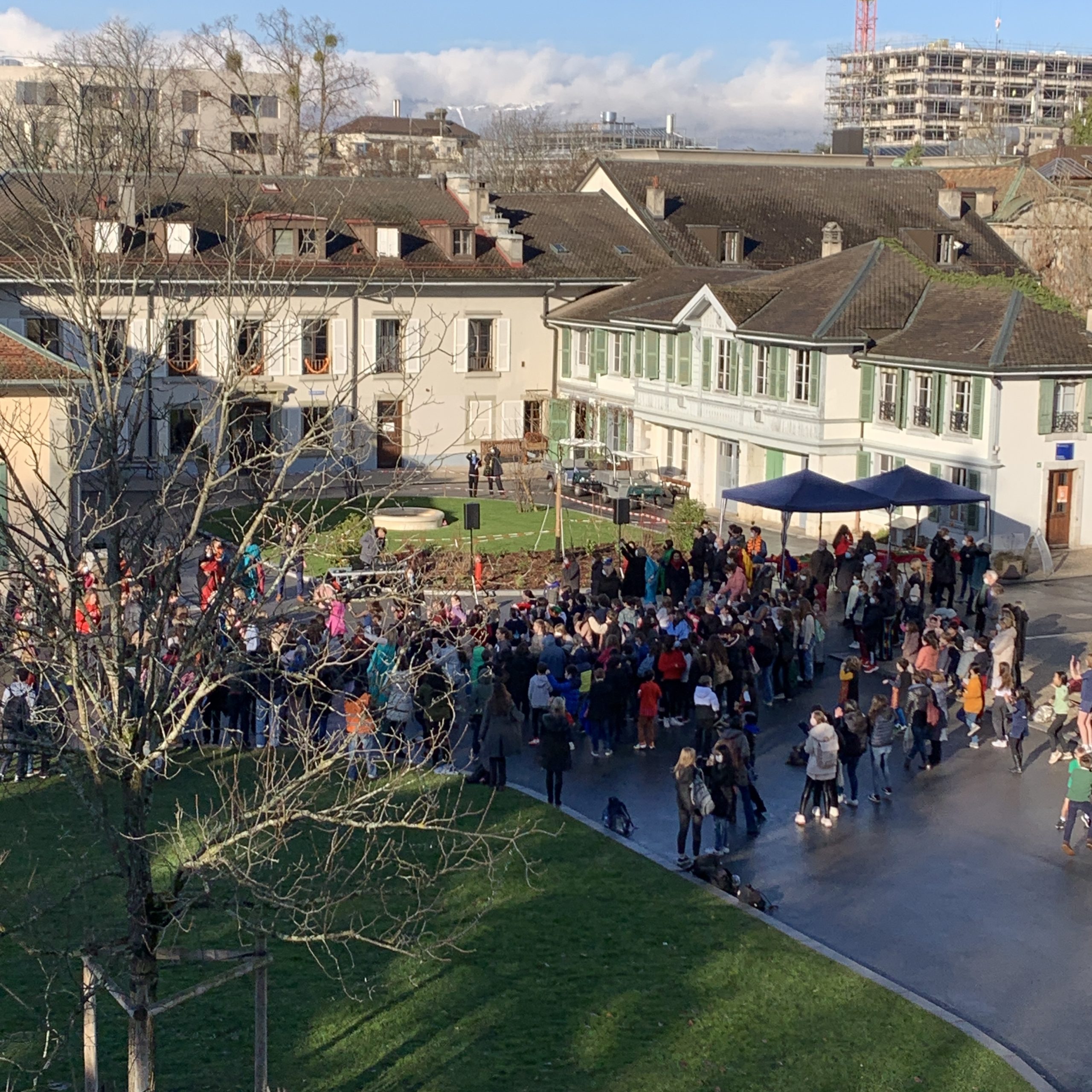By Naia Gerigk Lopez, Year 12
A third culture kid is a fairly modern phenomenon, referring to a child who grows up in a culture different from the one in which his or her parents grew up in. At Ecolint, there are many of us, and a commonly shared trait of third culture kids is being multilingual.
After sending a survey to the LGB’s Year 12’s, I found that 70% of the respondents speak three to four languages, and there is even a minority of 6% that are polyglots.
Despite this being a great achievement, the ones who speak the most languages also reported struggling to answer when asked what their mother tongue is. Based on the answers received, this struggle largely stems from uncertainty regarding the definition of a mother tongue. The Oxford dictionary defines it as ‘the language which one grows up speaking from early childhood’. For us third culture kids, the confusion stems from the fact that a mother tongue is supposedly also meant to be the language one speaks best. However, the language our parents taught us as children is not necessarily the one we speak best. Instead, many answered that their mother tongue is English, despite only a minority of the respondents actually originating from English-speaking countries.
Another common trait of third culture kids is having several nationalities or origins. The majority of students seem to have two nationalities, however, 27% reported having three or more. I was curious to see how people usually navigate answering the classic question: Where are you from? I was particularly interested because, personally, my answer varies depending on how much time I have and who’s asking.
Similarly to the mother tongue topic, those with the most origins tend to struggle the most to answer, whereas those who said they do not struggle typically had just one origin. Just like with the mother tongue, it is also a question of definition. For some, the answer is where they currently live; for others, it is the country of their passport; and for the majority, it is where their parents originate from.
My personal experiences were reflected in the answers—for instance, some replied saying that it depends on the context. If asked in Switzerland, they reply with their ethnicity, whereas if asked abroad, they say Geneva. For a small minority, there is also an awareness of the reaction their answer might provoke due to the current political climate. However, despite the fact that answering this question can be surprisingly hard, it doesn’t seem to weigh very much on anyone, as we attend a school where this phenomenon is quite common.
This leads me to the next question I asked LGB Y12 students—whether they feel an instant connection with other third culture kids. Considering the answers received, I can conclude that while the majority definitely feel some sort of understanding between each other, the similarities shared don’t necessarily lead to an instant bond. I personally agree; rather than feeling a particular bond with other third culture kids, I more so experience a certain dissonance with people who do not share the same experiences.
Another typical attribute is moving frequently while growing up. The survey results indicated that only 27% of students have never moved, the rest have relocated at least once, with a fifth having moved three times or more. I wanted to investigate the impact this can have on teenagers so I asked those who have moved often what they consider to be the advantages and disadvantages of doing so. Many reported that the biggest challenge is adapting to a new environment and culture, with a few attributing this struggle to the language barrier. Despite many agreeing that the initial phase of adaptation can be difficult, even more students described their experience as positive and considered moving to be a privilege.
Nonetheless I was curious to see what students miss the most from “home” for those who don’t consider Geneva to be home. The most common answer was family and friends, with a few also mentioning the comfort and familiarity of being surrounded by their people. I find it interesting that, despite all being third culture kids, we still have rather different experiences—some are unable to identify a home and struggle to explain where they are from, while others feel a deep sense of homesickness.
A further recurrent attribute of third culture kids is a lack of sense of belonging. While the majority of students could identify a place to call “home”, 13% consider multiple places to be home. Another 14% are unsure where home is. I believe this feeling is an amalgamation of the previously mentioned characteristics of third culture kids—such as not having a clear mother tongue, moving frequently, and having several origins yet no definitive “home”.
While these somewhat negative traits indicate that a large majority of LGB Y12 students feel uprooted, they also reported that this has allowed them to be more open minded and adaptable. Is this uprootedness and confusion the price that third culture children need to pay to have an open world view?



